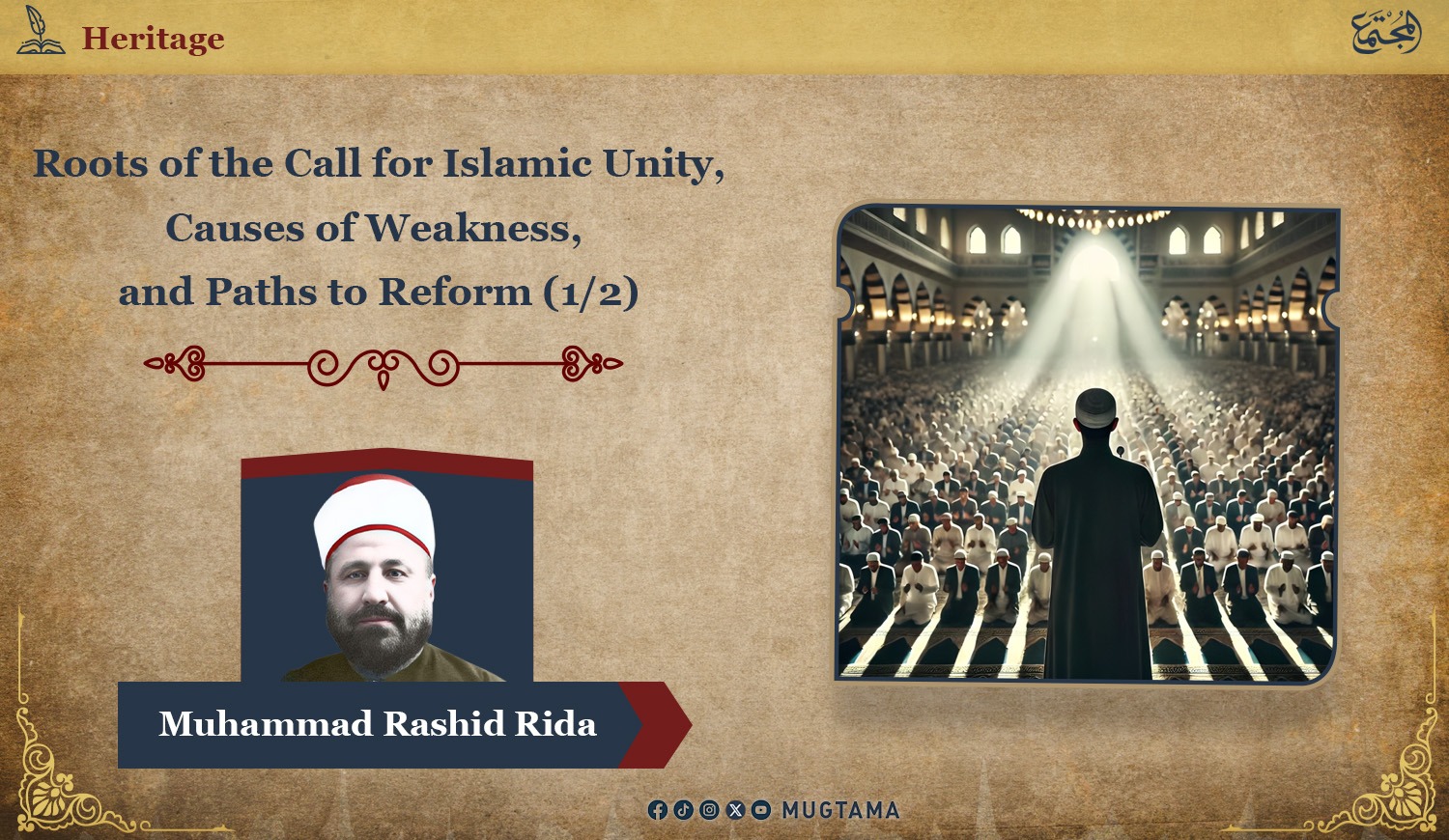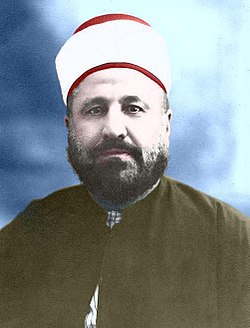Roots of the Call for Islamic Unity, Causes of Weakness, and Paths to Reform (1/2)

The first voice we heard in this era calling Muslims to mutual understanding, unity, and cooperation in thought—and to address the social calamities that brought them down from their former heights to their current decline, surpassed by both People of the Book and pagans in civilization—was the voice of two noble reformers: Sayyid Jamal al-Dinal-Afghani and Sheikh Muhammad Abduh. May God have mercy on them and reward them for their service to the faith and the ummah.
Sayyid Jamal al-Din authored many articles awakening Muslims from their
slumber, exposing the causes of their fragmentation, and guiding them toward
unity and strength. His lessons, speeches, and dialogues—though not all
recorded—are well known among scholars.
When the two met in Paris, they launched the journal Al-‘Urwah al-Wuthqa, whose central mission was to invite
Muslim scholars and thinkers to reflect on the state of the ummah and guide it
toward progress. They envisioned local reform efforts in each region,
coordinated through a general assembly in Mecca during the pilgrimage season.
They didn’t rely solely on the journal’s publications—they also
corresponded directly with those they deemed capable of contributing to reform.
Volume II of Tārīkh al-Ustadh al-Imām includes samples of these letters
(see pp. 488–512).
In the opening of the first issue of Al-‘Urwah al-Wuthqa, after
noting the awakening of Muslim intellectuals and their efforts to heal the
ummah’s ailments, they wrote:
“Since Mecca is the birthplace of faith and the axis of certainty, and
since the annual pilgrimage gathers East and West, where the noble and humble,
rich and poor stand side by side in sacred unity—it is the best place for ideas
to converge and then spread across the world. And God guides whom He wills to
the straight path.”
In the fifth issue, under the title {“Hold fast to the rope of God all
together and do not divide”} (Qur’an 3:103), they outlined a vision for
religious reform:
“Let them establish centers across regions to coordinate unity, guide the
masses through revelation and sound tradition, and bind the threads of
connection to a single hub—centered in the sacred lands, especially the House
of God in Mecca—so they may strengthen religion and protect it from the blows
of aggression.” (See p. 254, Volume II)
In the tenth issue, under the hadith “The believer to the believer is
like a building, each part supporting the other,” they wrote (see p. 29, Volume
II):
“If sincere scholars focused on connecting Muslim voices across regions,
they could unify hearts swiftly. This is not difficult, especially since God
has honored His sacred House and made pilgrimage obligatory. In that place,
Muslims from all generations and ethnicities gather…”
This shared vision between the two reformers dates back a quarter century, with the first issue of Al-‘Urwah al-Wuthqa published on 5 Jumada al-Awwal, 1301 AH.
Reform Proposals and Political Realities
When we launched the journal Al-Manar in late 1315 AH, we
published in issues 30 and 40 a proposal for religious reform. We suggested the
Caliphate establish an Islamic society in Mecca with branches across Muslim
lands. This society would address reform in creed, ethics, legal and civil rulings,
language, and combatting harmful innovations.
We directed this proposal to the Ottoman Sultan, emphasizing his unique
ability to implement it and prevent interference from lesser authorities.
Later, Abdul Rahman al-Kawakibi arrived in Egypt in 1318 AH and
published The Records of the Um al-Qura Society, imagining the secret
formation of such a society during the 1316 pilgrimage season—without Ottoman
or local approval.
These reform efforts always intertwined religious and political renewal,
reflecting the Islamic tradition of integrating faith with all aspects of life.
This was also the original vision of Sayyid Jamal al-Din.
After parting ways with Sayyid Jamal in Europe, Sheikh Muhammad Abduh
returned to Syria and Egypt, seeking reform through government persuasion. He
drafted three memoranda:
- A proposal for reforming the
Ottoman Empire, submitted to the Shaykh al-Islam in Istanbul in 1304 AH
- A proposal for reforming Syria,
submitted to its governor
- A proposal for religious
education reform in Egypt
Neither the Ottoman nor Egyptian governments acted on these proposals. Had they done so, they would have achieved more than any conference or society could.
A Shift Toward Grassroots Reform
In his final years, Sheikh Abduh grew disillusioned with Muslim rulers
and placed his hopes in enlightened scholars and reformers. He advocated for
non-political, grassroots reform focused on creed, ethics, and social
cohesion—avoiding confrontation with authorities and seeking their passive
approval.
He believed this approach was feasible even under European Muslim rulers,
provided the reform was clearly non-political. One of his famous sayings:
“Whenever politics enters a matter, it corrupts it.”
Most Muslim intellectuals today seem to agree.
A Call for an Islamic Conference
Recently, Ismail Bey Gasprinski, editor of the Turkish journal Tercüman
published in Bakhchysarai, Crimea (then under Russian rule),
visited Egypt. He delivered a speech proposing an Islamic conference in Egypt
to explore why Muslims lag behind other nations—explicitly excluding political
topics and focusing on social and economic causes.
But what are these causes?
We argue that Muslims, like all humans, are capable of progress. What
holds them back are two forces:
- Political despotism
- Religious rigidity that restricts
their behavior—even in their homes and finances
For example, some scholars at Al-Azhar strongly oppose wearing black shoes
(known locally as jizam), and some Sharia judges reject electric bells
in courtrooms to summon clerks—claiming such things are inappropriate for
religious figures or religiously disapproved.
Though seemingly trivial, these examples reflect deeper issues. They
resemble the Qur’anic metaphor of the mosquito and the fly—small symbols of
larger truths.
Muslims cannot compete with nations free from constraints that limit
intellectual exploration and practical action. Their minds and wills are
bound—either by outdated religious customs or authoritarian politics.
Thus, the conference’s mission must be to break these chains and restore Muslim freedom and independence. If political topics are off-limits, then religious reform remains—and that includes matters related to rulers and those unrelated to them.
A Case Study: Financial Institutions
Consider financial companies, the backbone of modern wealth. This is not
a theoretical issue—it’s a real one, central to Egypt’s modern political and
economic transformation.
We do not presume to issue religious rulings here, nor invent
disagreements. We simply recount the reality: Muslims are constrained by
traditions that prevent them from building wealth, which is the foundation of
civilization.
---------------------
Source: Al-Manar Journal
This text is a speech delivered by Ismail Bey Gasprinski, translated by Sheikh
Abdul Wahhab Al-Najjar, and published by Muhammad Rashid Rida under the title “Some
Conditions of Muslims in Russian Lands”, delivered at the Continental Hotel
in Cairo.











